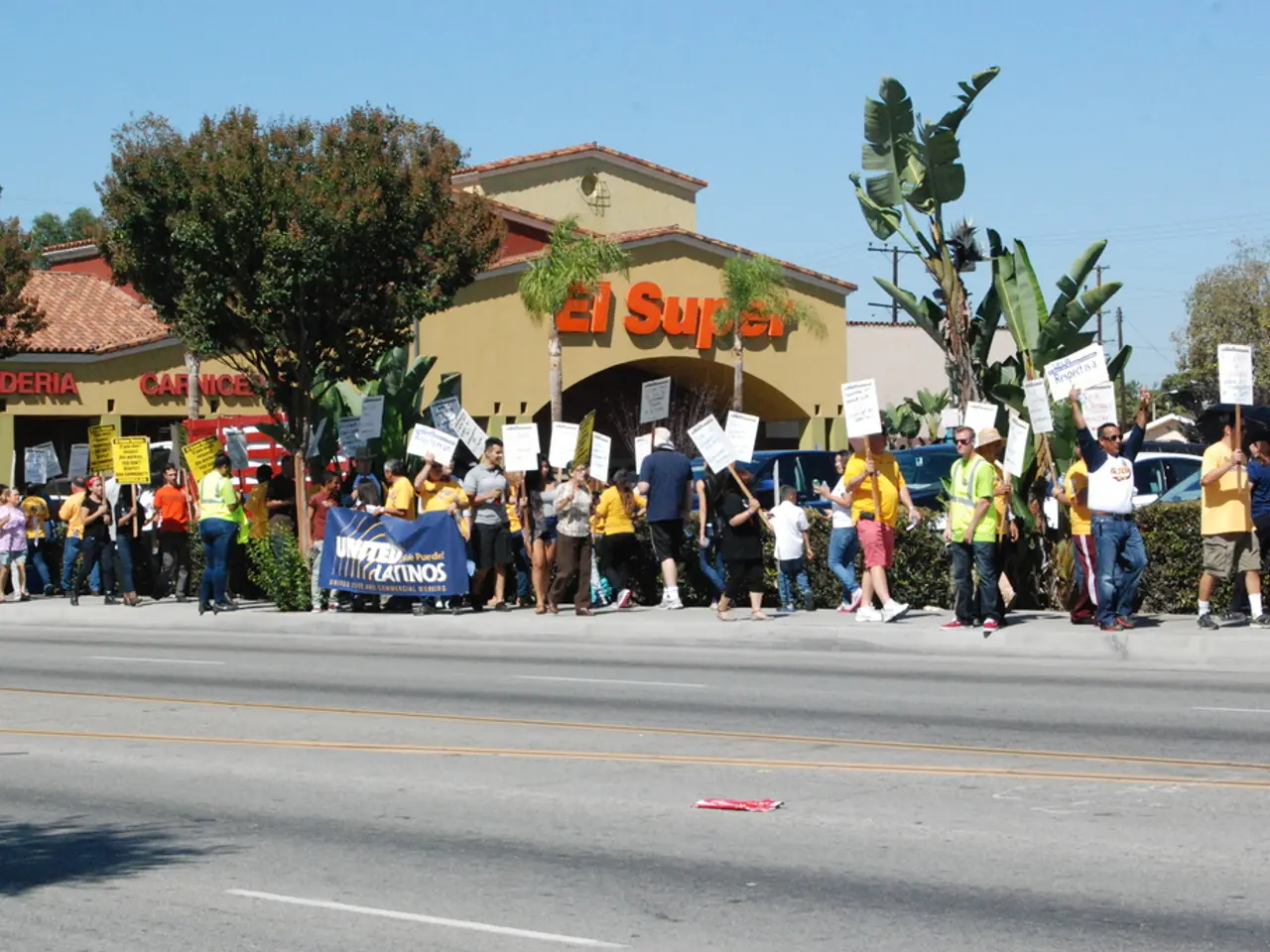California advances with bipartisan redistricting initiative in response to Texas' action
As the 2026 midterm elections approach, a high-stakes legal and political battle is unfolding between California and Texas over redistricting, which could significantly impact the control of the U.S. House of Representatives.
Texas's Redistricting Battle
In December 2021, the U.S. Department of Justice filed a federal lawsuit against Texas, challenging the state’s congressional and state House redistricting plans. The lawsuit alleges that Texas’s map violates Section 2 of the Voting Rights Act by diluting Latino and Black voting strength. As of July 28, 2025, the court closed the case, but details of the resolution’s impact are not specified. Meanwhile, Texas Republicans have pushed through new maps rapidly, with Governor Greg Abbott expected to sign them into law.
California's Counter-Redistricting Strategy
In response to Texas’s aggressive partisan gerrymandering, California Democrats passed legislation in August 2025, setting up a special November election for voters to approve a new congressional map that would add five new Democratic-leaning seats. This new map would only be implemented if another state, like Texas, redraws its own congressional maps first. California Republicans have criticized this move as an overreach and unconstitutional, and they have filed lawsuits to block or delay the process.
Potential Impact on U.S. House Control
Texas’s redistricting, if allowed to stand, is expected to advantage Republicans by concentrating Republican voters into more districts, potentially flipping some seats. California’s counter-redistricting seeks to neutralize the impact by adding Democratic-leaning districts, which could balance out seat changes nationally. This battle may influence the overall balance of power in the U.S. House for the 2026 midterm elections, as both states are highly populous and hold numerous congressional seats.
The U.S. Supreme Court’s 2024 ruling in Rucho v. Common Cause removed courts from adjudicating partisan gerrymandering claims, making the political and legislative fight between states more intense since legal remedies are limited.
Other States Join the Fray
Elsewhere, leaders from red and blue states are threatening to write new maps, including Florida and New York. A document obtained by The Associated Press shows Missouri received an invoice for $46,000 to activate six redistricting software licenses and provide training for up to 10 staff members.
Rallies and Political Response
In Los Angeles, California Governor Gavin Newsom launched a campaign-like rally for the new districts with the state's Democratic leadership. Meanwhile, in Texas, Democrats who had halted a vote by leaving the state announced they will return home if Texas Republicans end their current special session and California releases its own recast map proposal. The rally in Los Angeles was expected to happen on November 4, with the aim of giving Democrats five additional U.S. House seats in the fight for control of Congress.
This move by California is a direct response to a similar Republican-led effort in Texas, instigated by former President Donald Trump. The rally focused on the looming battle as a conflict with all things Trump, tying it explicitly to the fate of American democracy.
- The politics and policy-and-legislation surrounding the redistricting battles in California and Texas are attracting significant attention in the general news, as both states are engaging in aggressive maneuvers that could influence the U.S. House of Representatives' control during the 2026 midterm elections.
- The redistricting policies in California and Texas are not just a local matter; they are part of a broader political landscape, with other states like Florida and New York also considering similar moves, adding another layer to the ongoing partisan gerrymandering conversations and debates in the United States.







